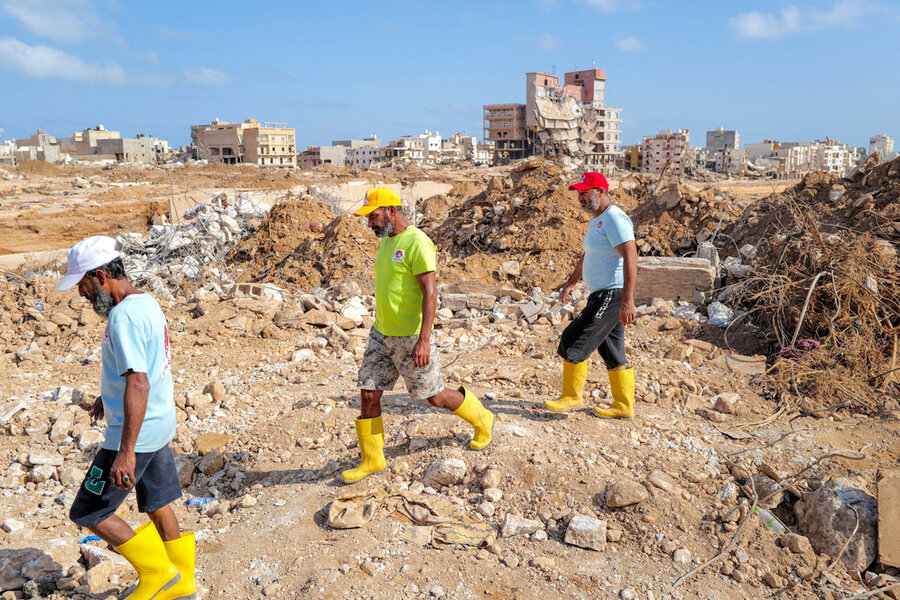The balm after the blow in Libya and Morocco
Loading...
When a catastrophe exposes a society’s poor governance, personal anguish can turn to anger. In recent days, Libyans have gathered in protest following last week’s disastrous flooding in the eastern city of Derna and other coastal towns. Their demands for accountability give voice to enduring aspirations for public integrity. “We feel this is a moment of change,” Elham Saudi, director of Lawyers for Justice in Libya, told The New York Times.
The basis of that change, however, may reside less in the outrage than in quieter ways. One example from the past is how New Orleans recovered from Hurricane Katrina in 2005. “If people can rally themselves to cross social barriers, ... [they] can ... cause institutions to do the same,” one study found. Its authors, Drew University English professor Amy Koritz and Carol Bebelle, a community arts supporter, wrote that the greatest challenge in post-disaster rebuilding is “of imagination, faith, and spirit.”
One institution in Libya showing such civic spirit is the Boy Scouts. Since the flooding, caused by the collapse of two dams during a massive storm on Sept. 11, roughly 500 Scout leaders and their troops have arrived in Derna from around the country. They have filled an essential gap, distributing relief supplies, helping families, and organizing games for children. They were welcomed because the Scouts are largely apolitical and have “a culture of selflessness,” Emadeddin Badi, an analyst on Libya at the Atlantic Council, told Middle East Eye.
Selflessness in Arab societies has a centuries-old tradition in the practice of hospitality, which is defined “as an act of unconditional surrender to the needs of others,” according to a scholar of Islam, Snjezana Akpinar.
A similar warmth has been evident in Morocco in the two weeks since an earthquake struck outside the historic city of Marrakech. “People’s hospitality is inspiring,” Hana Elabdallaoui, an Islamic Relief aid worker, said of residents in the village of Douar Tedcharte. “They have lost almost everything but are still willing to share what little they still have. In the villages people offered us cups of tea. It’s an example for all of us that no matter how hard life is, you can always find a way to be kind to others.”
In Derna, protesters have not only demanded the resignation of public officials they blame for the collapse of the dams. They have also chanted, “All Libyans are brothers.” That cry marks a rejection of the factional divisions that have destabilized Libya for more than a decade. As Noura Al Jerbi, a Libyan women’s rights activist, told the United Nations just weeks before the flooding, the basis of the country’s renewal resides in forging a path “where every voice is heard, every life is valued and the bonds of our shared humanity are unbreakable.”
The work of rebuilding from disasters starts not with bricks and mortar, but with countless unheralded acts of sacrifice.





